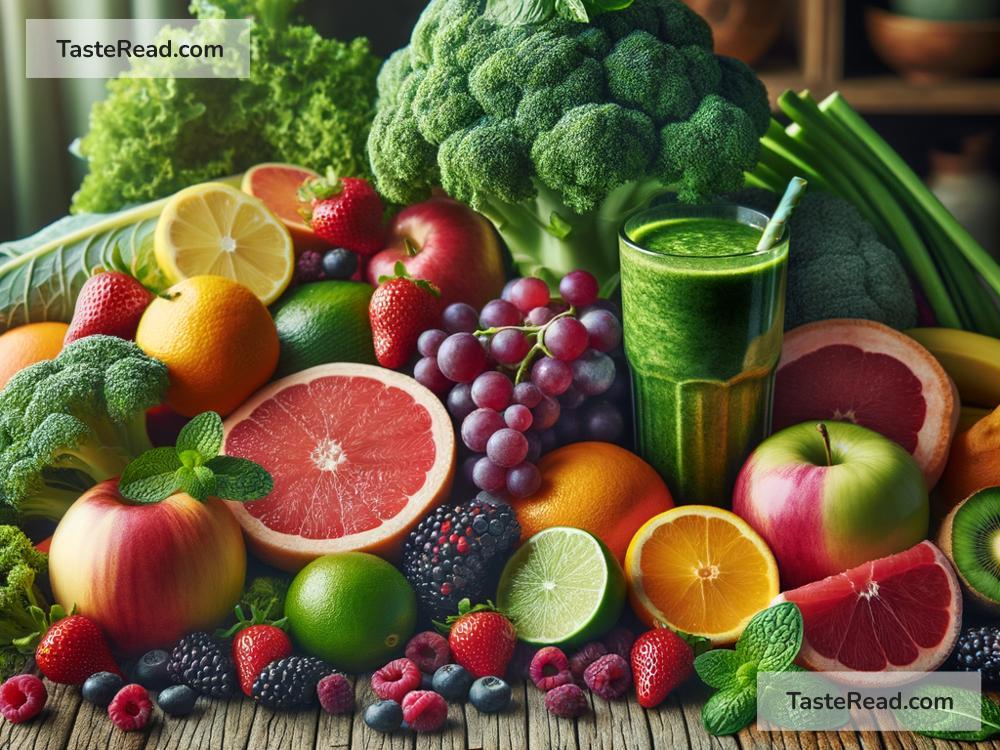Understanding the Role of Flavonoids in Health
When we hear about eating healthy foods, we often come across terms like “antioxidants,” “vitamins,” or “minerals.” But there’s another group of natural substances that plays a big role in keeping us healthy: flavonoids. These compounds are found in plants and are key to protecting our health in many ways. Let’s take a closer look at flavonoids—what they are, what they do, and how we can benefit from them.
What Are Flavonoids?
Flavonoids are natural chemicals found in plants. They are part of a larger group of compounds called polyphenols and give plants their bright colors, like the red of strawberries, the orange of oranges, and the deep purple of grapes. But flavonoids aren’t just pretty—plants use them to protect themselves from pests, diseases, and UV rays from the sun.
For us humans, flavonoids serve as powerful compounds that help strengthen our bodies. They are mainly known for their antioxidant effects, meaning they help fight off harmful molecules in our bodies called free radicals. Free radicals can damage our cells over time, leading to problems like aging, inflammation, and diseases such as cancer or diabetes. Flavonoids work to keep these harmful molecules in check, helping our bodies stay healthy longer.
Types of Flavonoids
There are thousands of different flavonoids, but they fall into six major categories. Each type plays a slightly different role in supporting our health. Here’s a quick overview:
-
Flavanols: Found in green tea, apples, and onions, these flavonoids are well-known for their heart-friendly properties. They can improve circulation and may reduce the risk of heart-related diseases.
-
Flavones: Commonly found in parsley, celery, and chamomile, flavones have anti-inflammatory and antioxidant effects, which help calm the body and reduce the risk of long-term diseases.
-
Isoflavones: These are mostly found in soy products and mimic estrogen, making them helpful for women going through menopause. Isoflavones can also support bone health and fight hormone-related cancers.
-
Flavanones: Found in citrus fruits like oranges, lemons, and grapefruits, flavanones are great for boosting immunity and reducing inflammation. They can also improve digestion and overall wellness.
-
Anthocyanins: These are the pigments that give blueberries, red cabbage, and cherries their vibrant colors. Anthocyanins help improve brain function, fight inflammation, and may even lower the risk of heart disease and cancer.
-
Flavonols: These are abundant in kale, tomatoes, and broccoli. Flavonols support cellular health and may help maintain clear skin and strong immunity.
Health Benefits of Flavonoids
Flavonoids do more than just protect plants—they offer many health benefits for people, too. Here are some of the key ways flavonoids can help:
1. Heart Health
Flavonoids are great for your heart. They can help lower blood pressure, improve circulation, and reduce the risk of heart attacks or strokes. Foods rich in flavonoids, like berries, tea, and cocoa, are often recommended as part of a heart-healthy diet.
2. Anti-Inflammatory Effects
Inflammation is your body’s natural response to injury or illness. But when inflammation becomes chronic (lasting for a long time), it can lead to diseases like arthritis, diabetes, or even cancer. Flavonoids have strong anti-inflammatory properties, helping to keep your body balanced and free from excess inflammation.
3. Boosting Immunity
A strong immune system is essential for fighting off infections, and flavonoids can help improve your immunity. Citrus fruits, green tea, and leafy greens are rich in flavonoids that help strengthen your body’s natural defenses.
4. Brain Protection
Some flavonoids, like anthocyanins and flavonols, may boost brain health. Studies suggest they help improve memory, focus, and overall brain function, while also protecting against diseases like Alzheimer’s. Foods like blueberries, grapes, and dark chocolate are especially beneficial.
5. Cancer Prevention
Certain flavonoids, such as flavanones and isoflavones, may play a role in preventing cancer. Their antioxidant and anti-inflammatory properties help reduce damage to cells, which can lower the chances of harmful mutations that lead to cancer.
How to Add Flavonoids to Your Diet
The best part about flavonoids? You don’t need supplements to get them—they’re naturally found in many delicious foods! Here are some easy ways to include more flavonoids in your daily diet:
- Eat a variety of fruits and vegetables: Aim for a range of colors like green (broccoli, kale), red (strawberries, tomatoes), orange (oranges, carrots), and purple (grapes, eggplant).
- Sip on tea: Both green tea and black tea are packed with flavonoids. Enjoy a cup daily for a simple health boost.
- Snack on nuts and seeds: Walnuts, almonds, and sunflower seeds contain flavonoids and other nutrients.
- Indulge in dark chocolate: Cocoa is rich in flavonoids, making dark chocolate a healthy treat (in moderation).
- Choose whole grains: Foods like oats and quinoa also contain flavonoids.
A Final Word on Flavonoids
Flavonoids might not be as well-known as vitamins or minerals, but they’re essential for maintaining overall health. By eating a diet rich in fruits, vegetables, tea, and whole grains, you can reap the powerful benefits of these natural compounds.
So the next time you grab a handful of berries, sip on a cup of green tea, or enjoy a bowl of salad, remember—you’re helping your body stay strong with the magic of flavonoids. Nature really knows how to take care of us!


